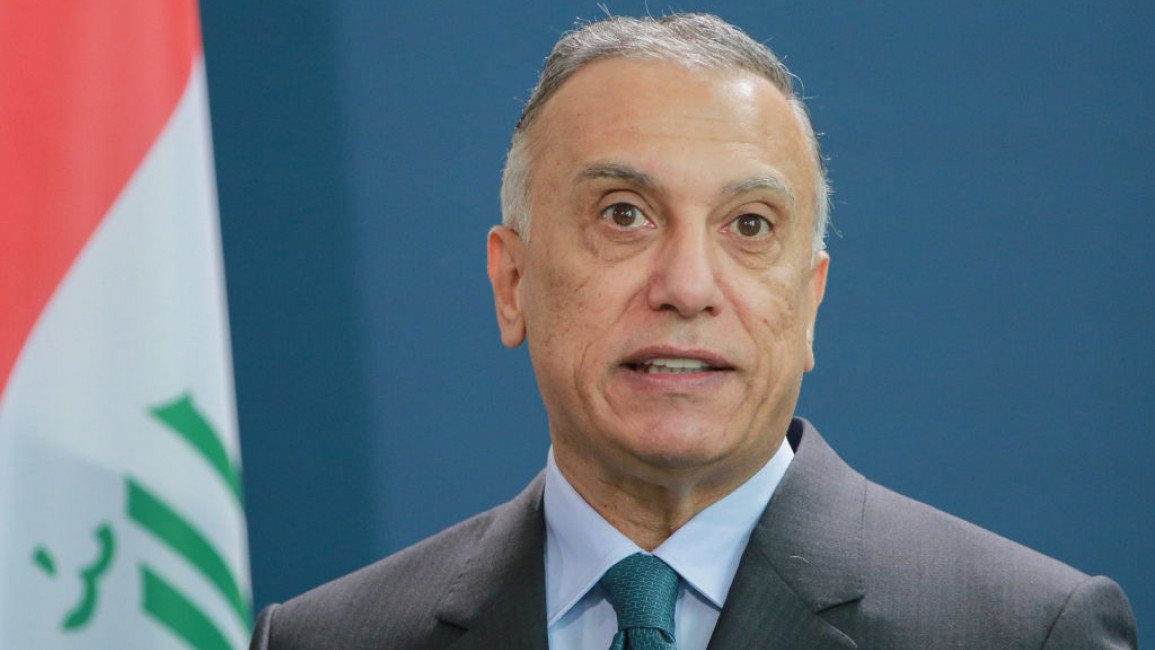Iraq to roll out new Baghdad security plan following deadly IS attack
Iraq's Prime Minister Mustafa al-Kadhimi has authorised a new Baghdad security plan after an Islamic State terror attack took at least 35 and wounded over 60 others late on Monday, just a day prior to Eid al-Adha.
The measure, apparently greenlit on Tuesday, includes the splitting of the capital city into two military commands and the reinforcement of troops in the outskirts, The New Arab's Arabic-language sister site, Al-Araby Al-Jadeed, reported on Thursday.
Major General Dhafer al-Muhammadawi was put in charge of operations on Baghdad's al-Rusafa side, while Major General Saad Mohsen Oraibi is taking the helm in al-Karkh.
Insiders with the security apparatus informed Al-Araby Al-Jadeed that "Iraqi authorities expect terrorist attacks that may target poor Iraqi areas in Baghdad in the coming period and the current measures aim to confront these challenges".
These Baghdad informants, among whom is a Joint Operations Command brigadier general, also said another issue is pro-Iran armed groups.
Al-Kadhimi has also ordered that troops be moved around within Baghdad and that their battle-readiness be improved.
He has also issued punishments against security figures for their shortcomings in Sadr City, the area of Baghdad where the Islamic State attack occurred on Monday.
The decision to split Baghdad in this way is the first such move.
The two military divisions are associated with the Iraqi Joint Operations Command – which al-Kadhimi heads.
Kati al-Rikabi is on the Iraqi parliament's security and defence committee.
He argued: "The security changes which are introduced from time to time will not be meaningful if traditional security plans continue to be used.
"Therefore, Iraq needs new and modern security tools, plans and strategies."
He told Al-Araby Al-Jadeed that "there is some political talk that some of the changes to security leadership positions come within a political plan as well".
"Some authorities accuse al-Kadhimi of seeking to control all the important security leaders, but the al-Kadhimi government justifies these changes and replacements on the basis of need," he added.
Traditional Iraqi security tactics include mass deployment of forces and the use of checkpoints, particularly in Baghdad's "Green Zone", where the US embassy and important political functions are located.
Despite this, terror attacks do happen, though this latest move by al-Kadhimi could be a solution.
"The Sadrists run the Ministry of Health and Ministry of Electricity and both sectors have corruption, so his announcement was to clean up his movement" https://t.co/XN2ym9pbVH
— The New Arab (@The_NewArab) July 22, 2021
Joint Operations Command Spokesperson Major General Tahsin al-Khafaji said: "The presence of security leaders in al-Karkh and al-Rusafa is an opportunity to reinforce security on both sides of the capital."
Similarly, researcher Ahmed al-Sharifi argued: "The Baghdad Operations Command has failed in recent years to realise any achievements, while Shia parties, especially the Badr Organisation, has controlled it almost completely.
"Therefore, the creation of sub-commands for al-Karkh and al-Rusafa under the commander-in-chief of the armed forces is a smart move."
As well as the attack in Sadr City, two Iraqi soldiers were killed on Wednesday morning and four others injured following an Islamic State attack on a military base north of Baghdad, Iraqi security sources said.
In addition to the serious threat of what's left of IS, Iraq is facing other political turmoil.
Last week, prominent Shia cleric and figurehead Muqtada al-Sadr announced he would be withdrawing from the nation's 10 October elections, though the country's electoral authorities have dismissed this move.



